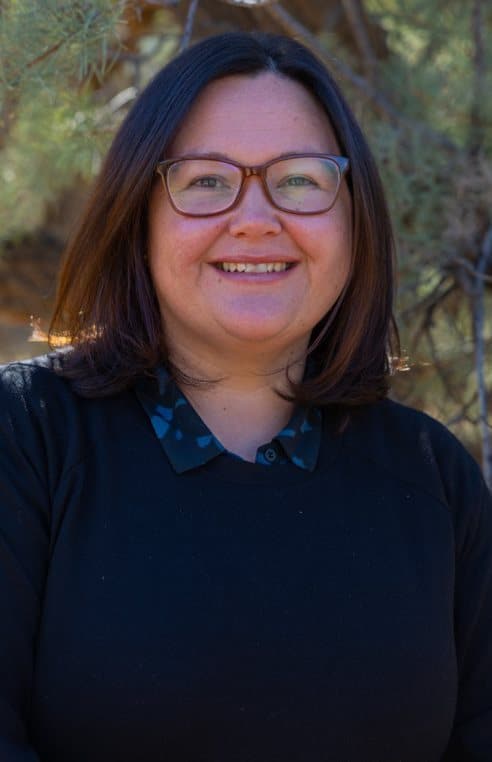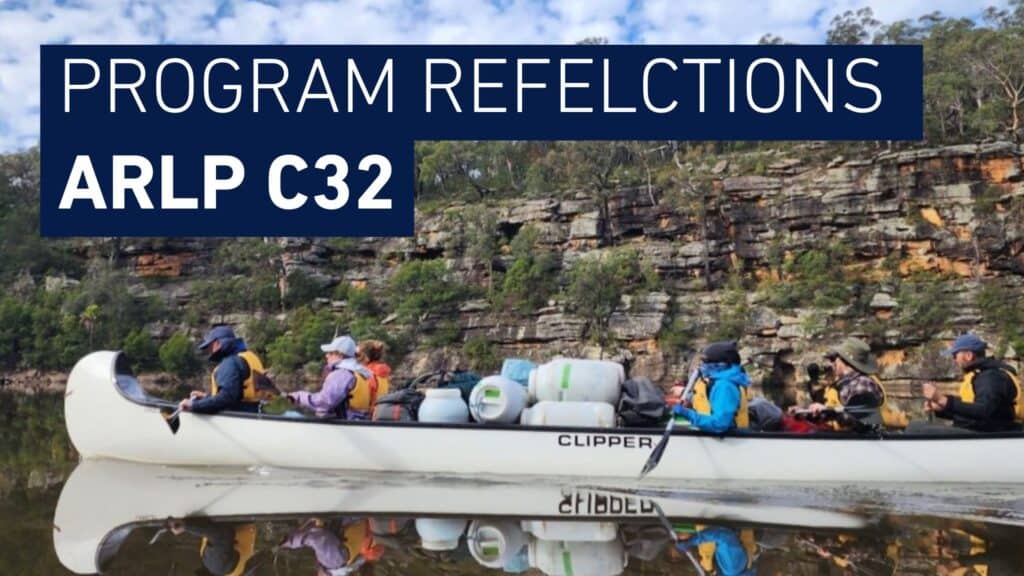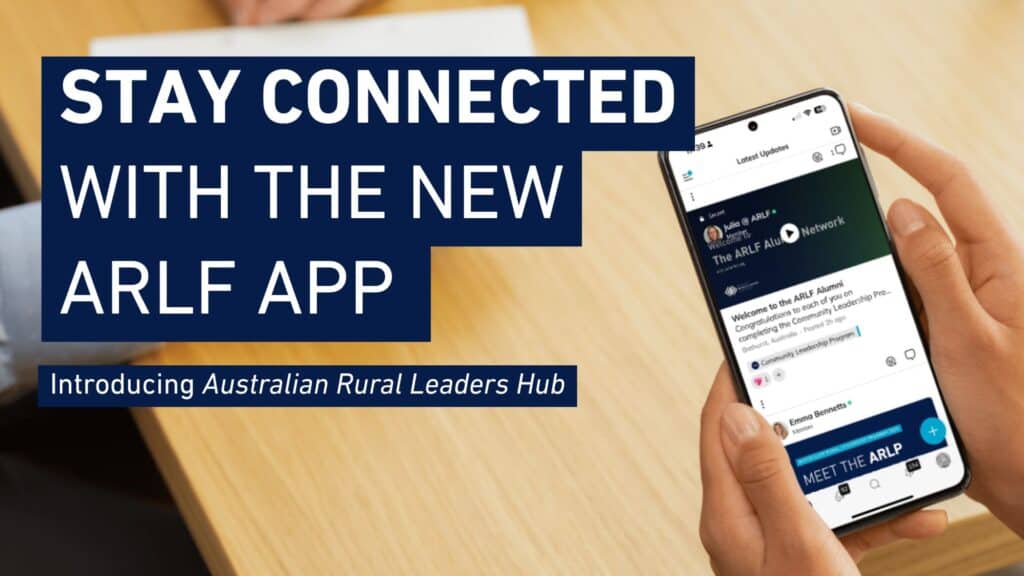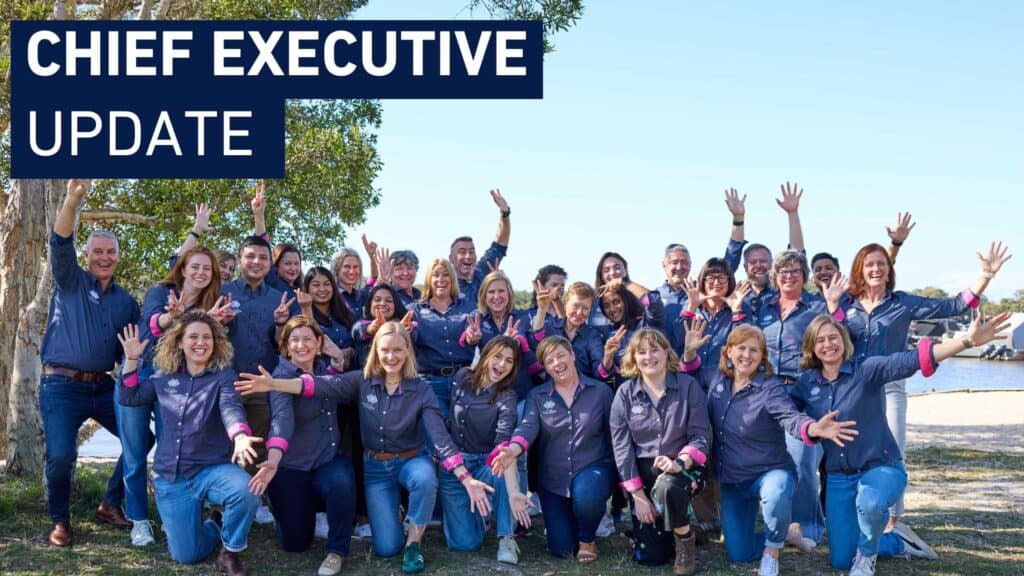Cassie Arnold is an Arrernte woman from Mparntwe—a self-described ‘Alice Springs girl’. She loves the area for its diversity, the characters it attracts, and its unique landscape and weather. But right now, Alice Springs is in crisis thanks to a targeted online campaign. Cassie knows public shaming isn’t helpful or productive, but she’s working hard to create resilience in her community.
As the Director of Regional Coordination for the Northern Territory Education Department, Cassie spends her days helping the Territory’s kids—no matter how remote—stay engaged in school. But she wasn’t always a bureaucrat. Until recently, Cassie was Principal of Centralian, Alice Springs’ only public Middle School.
Centralian’s student population sits around 300 Year 7-9 students and represents a diversity of backgrounds. About 60% of are Aboriginal and 50% of the student body have identified additional support needs.
Cassie says leading the school during Covid-19 was a challenge. But when a local man started what Cassie calls ‘an Aboriginal-focused crime page’ on Facebook, the situation went from stressful to untenable.
A public shame campaign
Photos and videos of Aboriginal people—obtained and posted without context or consent—put Alice Springs onto international headlines for all the wrong reasons. The posts claimed to be highlighting crime and anti-social behaviour, and they sparked dangerous calls for vigilante justice. With 60,000 followers on the platform, and ‘everyone in town consuming the racist, vitriolic comments,’ Cassie said the page ‘highlighted how many people have racist views’.
‘I’m not silly. I know those racist feelings exist. But it makes me sad for the future generations in our town. The kids are reading it—they know what the adults are saying about them.’
When Cassie’s students, aged between 12-15, were featured on the page, she tried to advocate for them. But Cassie knew the page was causing tangible harm to the children in her care. Public shaming caused at-risk students to ‘stay away from school for a long time,’ which led to worse outcomes on almost every front.
It was too much
Last year, Cassie’s support system—her parents, as well as her brother and sister and their families— left town. Her husband had just started a new job as a firefighter and his shifts meant he wasn’t reliably available on the home front. The pressure of leading the school, raising her family, and protecting her own mental health was just too much.
‘I felt like a failure. I felt like I’d let my school down,’ she said.
When she heard about the Southern NT LARC Program, she saw it as the perfect reset opportunity. Cassie has participated in lots of leadership programs over the years, but she appreciated LARC’s culturally responsive delivery.
‘I had never been on a leadership course where they’ve taken us out bush. It was restorative to meet leaders from other sectors and get to know their experiences. We’re too siloed in Alice Springs… [LARC] created a network of connected advocates, and the mix of representatives was spot-on’.
Data driven action
In small groups, LARC participants deliver a Community Action Initiative, designed to build community resilience. Cassie’s team is working to measure the impact the negative media is having on general wellbeing in Alice Springs. They have plenty of anecdotal evidence, but no data to back them up.
The team believes negative media is making it harder for businesses to attract and recruit staff and causing residents to leave town. Not only that, many agencies are maxed out— ‘we risk burning our current staff out, which will have negative flow-on effects to the whole community,’ Cassie says.
Buoyed by the time spent together during the 5-day LARC leadership workshop, Cassie’s team is working together to quantify the damage the negative media has done in Alice Springs. To start with, they’ll use a stand at the Alice Springs Show as a hub for their public survey. Using a short series of targeted questions, they’ll collect data about how negative media has affected their community—from an emotional, financial, and social perspective.
The power of perspective
Now part of a 10-strong network of LARC grads in the NT, Cassie valued the opportunity to connect with passionate people from across different sectors. After spending so much of her time as Principal putting out fires, she got a lot out of spending time reflecting on the notion of leadership. And she learned a lot from the experiences her co-participants shared.
‘I met some amazing people in Alice. And I’ll use these new networks to progress work in the Education Department for Central Australia,’ she says.
On a personal level, LARC was an important part of Cassie’s healing journey. ‘I’m back in a space where I feel I have more to give. I’m feeling more confident to connect with others and seek out new opportunities’.
Pain and beauty
Each morning, Cassie gets out of bed to serve. And the fact she’s in a position to shape the future of education for Central Australia is not lost on her. It wasn’t long ago that Cassie’s grandmother—and many other Arrernte people—spent years in state-sanctioned indentured servitude in the Northern Territory.
‘I know Alice Springs is a beautiful place. This program reminded me that it’s not all doom and gloom. It showed me just how many people are invested and want positive change.’ Cassie goes on ‘Alice Springs is a good place to belong to. As a community, I know we can work out how to respond respectfully and productively [instead of] looking at the issues through a lens of anger’.
Cassie Arnold is very clear on what success looks like and she’s not about to give up on her community:
‘It would be amazing if our Aboriginal kids could understand that they deserve a future like every other kid. It does feel insurmountable but the leaders are here and we aren’t at odds. With the right investments and the right people doing the right things, we can strengthen our community for those kids’.





